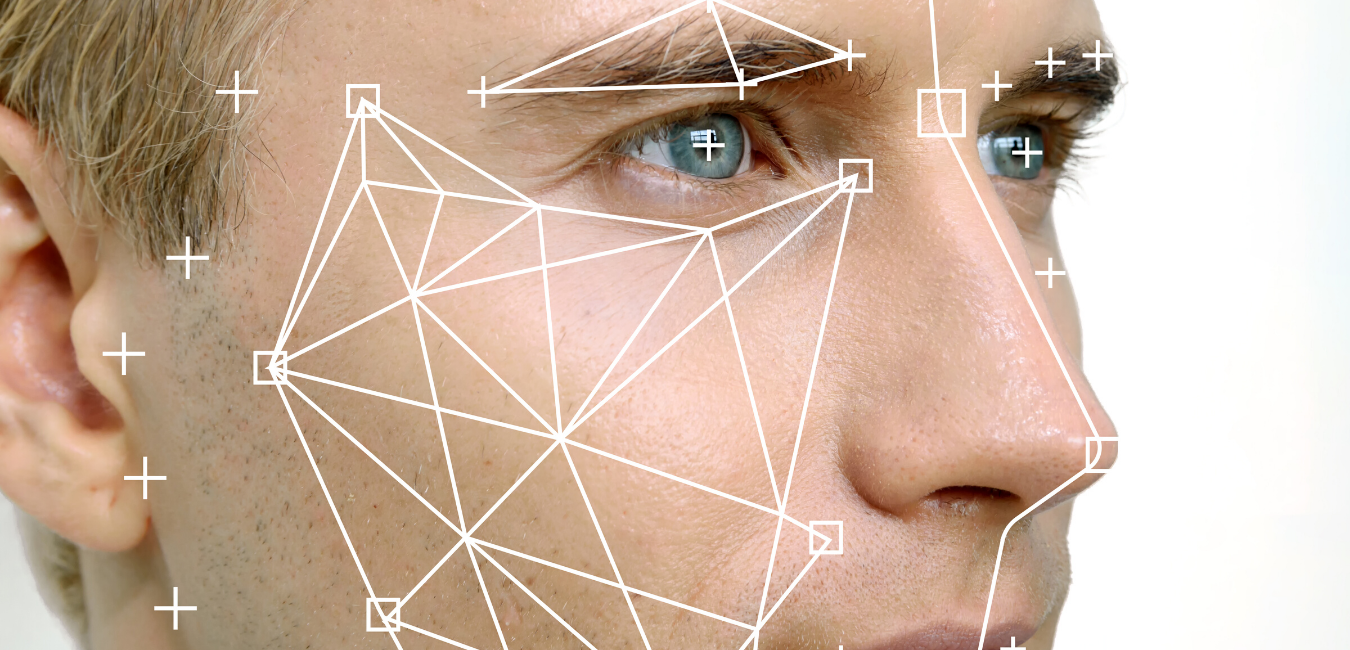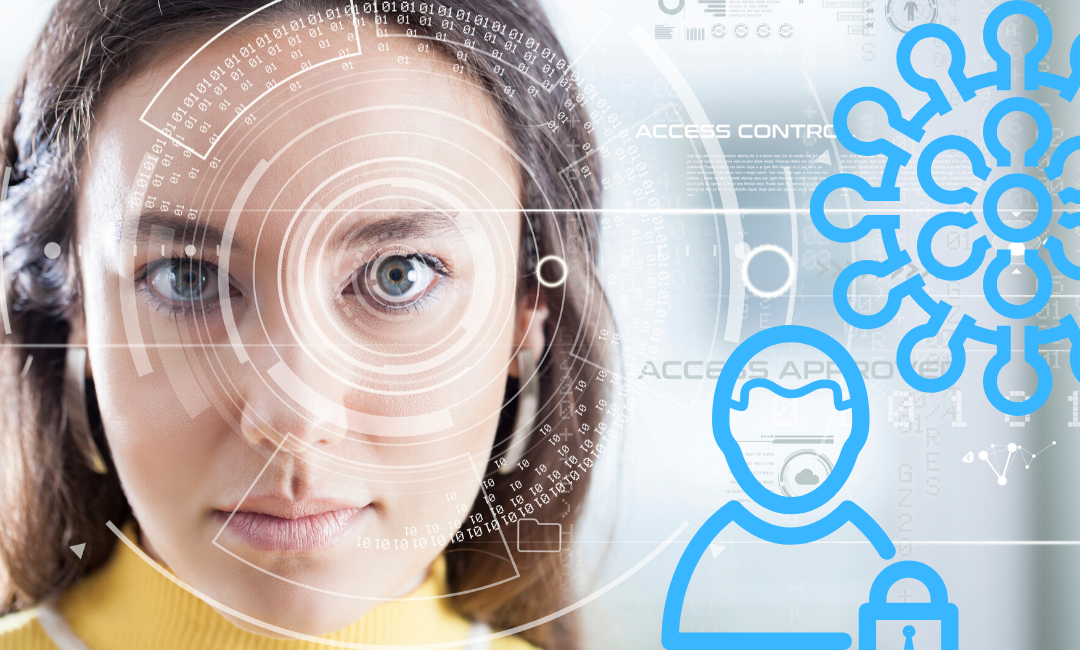These are strange times that we are living in. The COVID-19 outbreak has caused billions of people to begin covering their faces with surgical masks, ski masks, headbands, you name it. All of this talk about faces has risen the concern about privacy risks via facial recognition. So, how has COVID affected facial recognition surveillance? Let’s explore the topic.

How Does COVID-19 Affect Facial Recognition?
The global facial recognition market growth in this forecast period is assumed on the rising incidents of identity theft. According to a study conducted in California-based private research firm, Javelin Strategy in 2017, 16.7 million Americans fell victim to identity theft crimes. Identity thefts are so common, just as is breaching user data. Although, when private data is protected through biometrics, facial recognition, privacy infringement becomes tough, More concerns for personal data protection will expand the global facial recognition market size until 2026.

Moscow Using COVID-19 to Amp UP Surveillance
There are nearly 178,000 surveillance cameras positioned around Moscow, Russia. They are nearly everywhere you look, actually, with some of them already connected to a facial recognition software that has assisted the police in arresting over 300 people.
However, the authorities are attempting to bring the whole fleet of cameras into the facial recognition network, apparently to catch people breaking the coronavirus quarantine. A senator with the ruling United Russia party, Franz Klintsevich, shook off privacy concerns saying “If there is a crime, it’s recorded on camera and eyewitnesses confirm this is what happened. Where is the abuse?”
This software, however, is extremely powerful. It was able to correctly identify a person wearing a balaclava, while critics say it’s ripe for abuse. Last year, journalist Andrei Kaganskikh bought real-time access to Moscow’s surveillance cameras via an internet forum. He asserted that police “can track people without a court order, without any checks.” Then, when activist Katrin Nenesheva painted her face with lines in an attempt to trick the cameras on a street in Moscow, police very quickly came in and shut down her protest. She said that “Your rights, even to minimal privacy, have vanished… You don’t even have your own face.”

Facial Recognition and Facial Coverings
Facial recognition surveillance systems generally come off as grim. People take notice of how this technology could be threatening to privacy and civil liberties. They also have considered the ways that they might resist being tracked and profiled wherever they go. An option regularly brought up is the idea of frustrating identification systems with accessories or clothing (as previously mentioned the woman from Moscow who painted lines on her face). Up to this point, it’s mainly been academic projects and art installations that have been experimenting with face-jamming. Although, with the spread of COVID-19 powering expanded surveillance as well as the number of people that are wearing masks, scarves, and bandanas, there is a bit of hope that masks will make face recognition more difficult to implement.
Face coverings are important to public health, though they don’t necessarily affect facial recognition surveillance. These are still flawed systems and prevent huge problems for civil rights and privacy. COVID-19 is likely to develop even more facial surveillance, not less.
Since nearly every crisis ends up exploited, companies have pulled back on the narrative that government investment in facial recognition technology during a pandemic is a win. In some cases, it’s harder for technology to identify a half-covered face. Although, companies have already created workarounds that create educated guesses about what masked faces look like. Even if the adaptations end up being less effective than advertised, masks still will not protect from facial surveillance. It is anticipated that government and private-sector companies are to continue using the technology. People don’t exactly have the power to resist facial surveillance. It’s not really right to place all the burden of privacy and civil liberties protections on individuals.

How The COVID-19 Pandemic Changes Surveillance
The New York Times wrote, not very long ago, that the “government’s use of digital surveillance techniques for the COVID-19 response, such as the tracking of geolocation to gauge quarantine restrictions, would lead to more pervasive digital tracking in the future.” There have also been reports of increased use of facial recognition surveillance technologies as governments use digital tools in response to the outbreak. These developments bring up some questions: In the future, given all of our collective experiences with this invisible enemy, will there be a move away from contact-based security and access control systems to “germless” and “touchless” processes? And, if so, what role will be played by facial recognition and other biometric-based systems? Facial recognition is already in place and has begun to replace contact-based systems, in some cases. For example, facial recognition is already being used in airports for security screenings, baggage drops, passport control, and gate check-ins.

Chicago-Made Glasses Designed to Block Facial Recognition Software
The company is called “Reflectacles”. The glasses are chunky, thick-framed, and when viewed on a security camera, the wearer’s face becomes a shining blob. The glasses, created by Scott Urban are among a largely growing number of devices developed in order to protect people’s privacy as facial recognition technology becomes faster, cheaper and more common. The technology is becoming more increasingly used by law enforcement and proclaimed by tech companies, partially because advancements in security cameras give the opportunity to record higher-quality images. Though, privacy advocates say that use of facial recognition should be looked at with concern.
The technology collects data in order to create a map of a person’s face. Privacy advocates worry that mass use of facial recognition software could erode personal privacy and be used to track people’s movements. “How are we going to protect ourselves, protect our privacy when we leave our front door?” said Dave Maass, senior investigative researcher at the San Francisco-based digital rights nonprofit Electronic Frontier Foundation. ”How do we ensure that as all these technologies advance, our privacy and our personal movements are also protected?” This is where entrepreneurs are stepping into the picture. Designers, researchers, and artists around the world have invented masks to block facial recognition technology. There are also glasses that use different features than Reflectacles, and even clothing with faces on the fabric is meant to confuse the cameras.
Illinois has one of the most strict laws in the nation to protect biometric data. This can include data from fingerprints, facial and iris scans. The 2008 law mandates that companies that collect information obtain prior consent from consumers, detail how they will use it, and specify how long the info will be kept. The law also allows private citizens, rather than just governmental entities to file lawsuits over the problem.
Reflectacles products, which range from $48 clip-on lenses to $164 glasses, use different methods to block facial recognition. The base model has regular frames but the lenses themselves block infrared light, so the wearer’s eyes don’t appear on infrared security cameras. Others have the material in the rims that reflect visible and infrared light. To a security camera, the wearer’s eyes become a glare. “I think most people are not aware of how aggressive and how powerful technology is,” said Crowley, a Portage Park resident. “When you say it, it sounds paranoid, but facial recognition software is so, so fast.”


